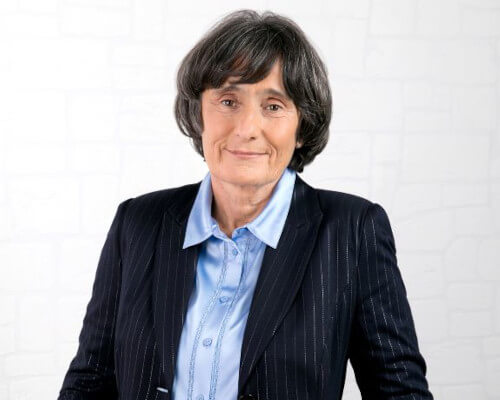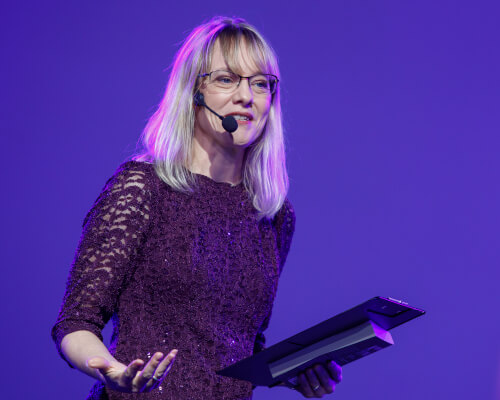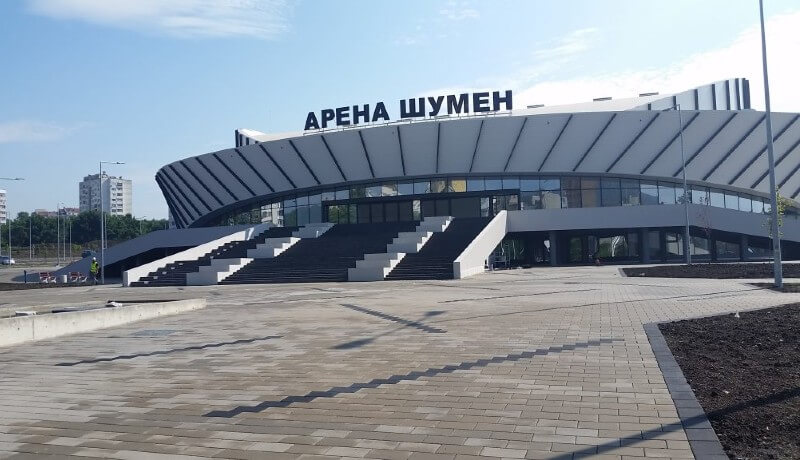
“You must care and be angry. A good journalist must be constantly angry. You can’t get used to or resign yourself to blatant wrongdoing,” Diyana Zhelyazkova says.
Diyana is a Shumen-based journalist, the publisher of local news site Radian.bg, and a regular contributor to Za istinata (“For the Truth”), an online platform for investigative regional journalism supported by the America for Bulgaria Foundation. Outside Bulgaria’s capital, Sofia, Za istinata journalists like Diyana are often the only ones keeping power to account.
It’s anger at the state of affairs in her corner of Bulgaria that has kept Diyana in an increasingly unpopular profession for more than 30 years. The pay is poor, appreciation even worse, and the emotional toll is high, but she can’t imagine doing anything else. “He who is afraid of bears should not go to the forest,” says Diyana, laughing.
In all seriousness, she says she finds journalism to be one of the most rewarding occupations she can think of.
What do rewards look like for her? “Reactions, consequences for those abusing the public trust, seeking accountability,” she says. She relishes even the small victories, little things changing for the better because she wasn’t silent, such as making public maintenance services do what they are paid to do or helping a disadvantaged young person get her job back.
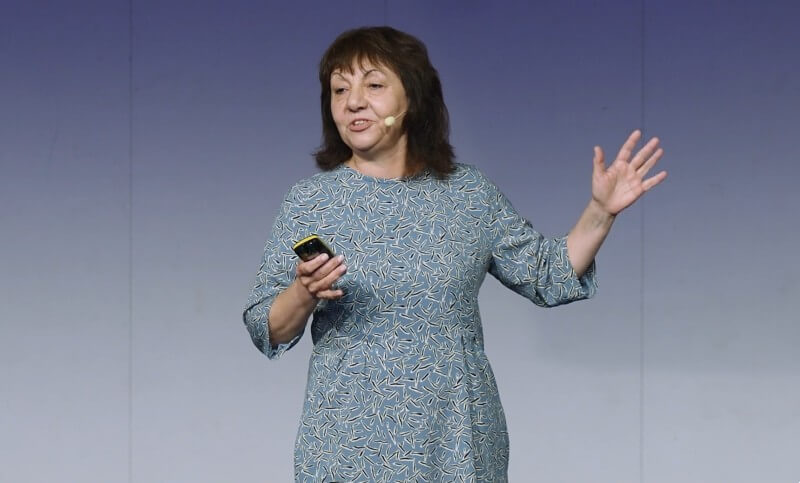
These successes notwithstanding, challenges loom large. In small towns, journalists asking power real questions and publishing uncomfortable truths are subjected to various types of pressure. Although smear campaigns and online troll attacks are preferred intimidation tools nowadays, overt threats against journalists and their families are not uncommon either. Journalists are squeezed financially both by the withholding of public funds and by honest businesses’ unwillingness to get on the bad side of politicians by advertising in critical media. Diyana is used to being turned down by advertisers with the following explanation: “I can’t run an ad with you because my head will roll.”
The language is figurative, but the consequences for businesses supporting independent journalism are very real. So, Diyana relies on a handful of brave companies, usually national ones and therefore less dependent on local patronage networks. She works three jobs to make ends meet.
All of these obstacles are surmountable, she says; what really gets her down is that she is increasingly alone. And she doesn’t mean alone in doing investigations; Radian.bg is often the only news site in the Shumen area announcing even publicly available information. In this culture of silence, often the only way to give exposure to a local injustice is to interest a national newspaper or TV network — or an international one, in the case of the Arena Shumen concert hall.
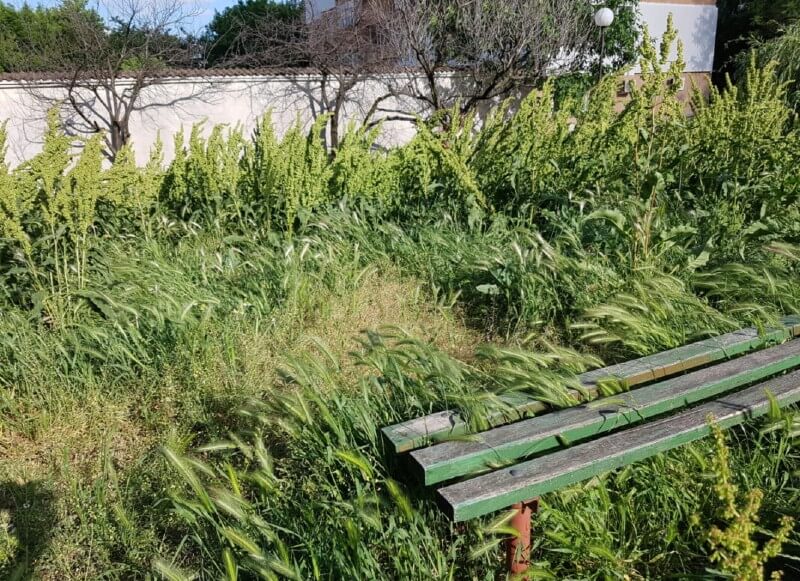
People’s indifference, either out of fear or because they are used to the abuses of power, is probably the worst, though. No one seems to be bothered by the fact that “Shumen’s pride and pearl” cost nearly 14 million levs yet couldn’t withstand even a modest amount of rain: its roof started leaking after the first rains, and the interior suffered extensive water damage. No one seems to feel the need to seek accountability either from the builder, or from the government.
“How is this possible? Why aren’t people angry?” Diyana’s colleagues from German broadcaster ZDF kept asking in disbelief. Germany’s second public TV network sent a crew to cover the concert hall story after the case was publicized in Za istinata and the Black Book of Government Waste in Bulgaria, an annual publication, supported by the Friedrich Naumann Foundation, detailing cases of ineffective spending of Bulgarian taxpayers’ money.
Predictably, no local media covered the story, nor did citizens demand explanations.
Sometimes, this state of affairs is too much even for someone as upbeat and resilient as Diyana. In 2016, she had just about reached her limit when a chance meeting with Za istinata founder Spas Spasov kept her from leaving journalism for good.
“It is really important to see that you are not alone,” Diyana says.
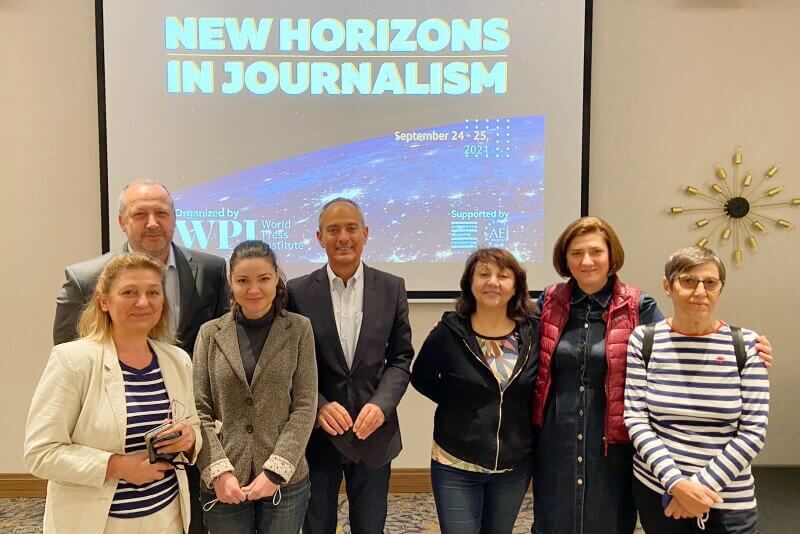
Za istinata organizes trainings and provides legal protection to investigative journalists like her. Crucially, it also offers a supportive network of like-minded individuals who are going through the exact same things.
An increasingly widely applied intimidation tool by those in power is simply ignoring uncomfortable questions and journalists. Where other, loyal reporters would readily receive information, Diyana is shunned: she has been taken off mailing lists, and her questions are ignored at press conferences. She is often forced to file formal requests for access to public information.
“They are using every which way to prevent me from doing my work,” she says. Even so, she has no intention of quitting any time soon. Her plan is to keep being angry. She just hopes that more readers will join her in her outrage and help her hold those in power accountable.
It’s a worthy cause: our money and quality of community life matter.
